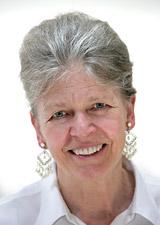
A Tale of Two Spliceosomes
About the speaker

Joan A. Steitz
Department of Molecular Biophysics and Biochemistry, Yale University
Dr. Steitz obtained a B.S. in chemistry from Antioch College in 1963 and went on to receive a Ph.D. from Harvard in 1967. Her thesis work provided fundamental insights into the assembly of the protein and nucleic acid components of viruses. Dr. Steitz then spent three years in postdoctoral studies at the Medical Research Council Laboratory of Molecular Biology in Cambridge, England, where she used early methods for determining the biochemical sequence of RNA to study how ribosomes initiate protein synthesis. Dr. Steitz moved to Yale in 1970 as an Assistant Professor of Molecular Biophysics and Biochemistry and was appointed Full Professor in 1978. She currently leads the Molecular Genetics Program in the Boyer Center for Molecular Medicine and is a Senior Investigator of the Howard Hughes Medical Institute.
Dr. Steitz is an internationally recognized leader in the biochemistry of RNA structure and function. She and her colleagues were the first to describe a group of cellular particles called small nuclear ribonucleoproteins, which provided novel insights into how RNA molecules are processed prior to their translation into proteins. Dr. Steitz’s achievements have led to a number of prestigious honors. These include the National Medical of Science in 1986; Carnegie Mellon University’s 1988 Dickson Prize for Science; and the 1989 Warren Triennial Prize, which she shared with Thomas R. Cech. In 1994, she was one of ten U.S. scientists to receive the Christopher Columbus Discovery Award in Biomedical Research and also received the American Academy of Achievement Golden Plate Award. In June, 1994, Dr. Steitz became the first recipient of the Weizmann Women and Science Award conferred by the American Committee for the Weizmann Institute of Science. In October, 1996, she received The City of Medicine Award, established in 1988 to recognize outstanding achievements in medicine throughout the nation and the world. She is a member of the American Academy of Arts and Sciences and the National Academy of Sciences. She is also the Executive Director of the Jane Coffin Childs Memorial Fund for Medical Research, which supports postdoctoral fellows.